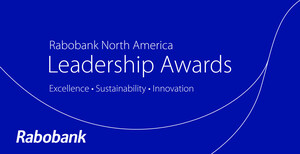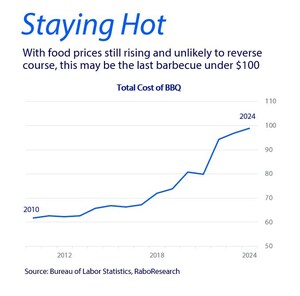Rabobank Report: How Western Companies Can Navigate China's Animal Protein Market
NEW YORK, Jan. 5, 2015 /PRNewswire/ -- China's demand for foreign animal protein products shows great growth potential. However, the path to success for western animal protein companies in China will remain complex and challenging. In its latest report entitled "Bulls in a China Shop," Rabobank foresees that the path to success can be navigated with a relentless focus on adding value to the supply chain, and by teaming up with better positioned local partners, investing in improving relationships with local governments and employing diversification strategies to better manage risks.
"Western companies have struggled to make sustainable profit and to compete in China's animal protein industry due to infrastructural and cultural challenges," explained Rabobank Analyst Chenjun Pan. "However, as the industry accelerates the consolidation and modernization process that is underway, more opportunities are opening and this is likely to continue."
China's animal protein industry is still fragmented and underdeveloped despite recent consolidation and modernization. The supply chain can often be inefficient and difficult to access. As a consequence, some western players choose to establish vertically integrated (VI) operations in order to isolate their business from those structures.
However, the VI model can only provide a temporary solution in China and it requires much higher capital investment. Foreign companies need to clearly differentiate themselves by bringing great value additions, such as new products, western culture or better services, to justify these higher operation costs.
In addition, local culture plays a strong role in Chinese consumers' lives and influences the way business operates. To tackle this, western companies can hire management which knows better how to deal with local suppliers, distributors and governments, or team up with local companies with good access to markets, i.e. Nestle acquired Yinlu and Hsu Fu Chi, but continued to use local brands in each market to achieve localization.
Political goodwill is also crucial to embrace this market. Local authorities expect foreign companies to establish best practices regarding food safety, traceability and technological improvements. Acknowledging these practices will often help establish political goodwill and help simplify bureaucratic procedures.
In order to navigate China's rapidly growing economy, western companies need to pay more attention to aspects such as challenges of dealing with farmers, understanding local culture and building connections with the government in order to further adapt to the local environment. Although facing challenges, western companies still have many advantages over local companies when it comes to quality assurance, food safety and other aspects of advanced technology.
Rabobank Group is a global financial services leader providing wholesale and retail banking, leasing, real estate services, and renewable energy project financing. Founded over a century ago, Rabobank is one of the largest banks in the world, with nearly $1 trillion in assets and operations in more than 40 countries. In North America, Rabobank is a premier bank to the food, beverage and agribusiness industry. Rabobank's Food & Agribusiness Research and Advisory team is comprised of more than 80 analysts around the world who provide expert analysis, insight and counsel to Rabobank clients about trends, issues and developments in all sectors of agriculture. www.rabobank.com/f&a
For your social media ready version of this press release:
http://rabobank-food-agribusiness-research.pressdoc.com
Follow us on Twitter: @RaboWholesale @rabofoodagri
SOURCE Rabobank
Related Links
WANT YOUR COMPANY'S NEWS FEATURED ON PRNEWSWIRE.COM?
Newsrooms &
Influencers
Digital Media
Outlets
Journalists
Opted In






Share this article